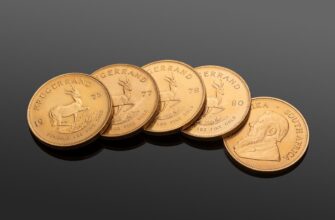🚀 Claim Your $RESOLV Airdrop Now!
💰 Big Profits. Massive Gains.
🎉 Join the $RESOLV Airdrop and step into the future of crypto!
⏳ You have 1 month to claim your tokens after registration.
🤑 This could be your path to financial freedom — don’t miss out!
🌟 Early users get exclusive access to the $RESOLV drop!
🔥 No cost to claim — only pure opportunity.
💼 Be among the first and watch your wallet grow!
- Understanding NFT Taxation in Thailand
- Are NFT Profits Taxable in Thailand?
- Step-by-Step Guide to Reporting NFT Profits
- Step 1: Calculate Your Capital Gain
- Step 2: Maintain Records
- Step 3: File Tax Return (P.N.D. 90/91)
- Step 4: Pay Taxes Due
- Key Deadlines and Forms
- Penalties for Non-Compliance
- Tax-Saving Strategies for NFT Investors
- Frequently Asked Questions (FAQ)
- 1. Do I pay tax if I only hold NFTs without selling?
- 2. How are NFT profits taxed for foreigners in Thailand?
- 3. Can I deduct losses from other investments?
- 4. What exchange rate should I use?
- 5. Are airdrops or free NFTs taxable?
- 6. Do I need to report peer-to-peer NFT sales?
- Final Tips for Compliance
Understanding NFT Taxation in Thailand
As Non-Fungible Tokens (NFTs) explode in popularity, Thai investors must navigate complex tax rules when reporting profits. Thailand’s Revenue Department treats NFTs as capital assets, meaning profits from sales are subject to capital gains tax. This guide breaks down exactly how to report NFT income correctly to avoid penalties.
Are NFT Profits Taxable in Thailand?
Yes. Under Section 40 of Thailand’s Revenue Code:
- NFTs are classified as personal assets (not securities or currencies)
- Profits from NFT sales qualify as assessable income
- Tax applies if you’re a Thai resident or sell via Thai platforms
- Losses can offset gains but aren’t deductible against salary income
Foreigners must also report Thai-sourced NFT profits if residing in Thailand >180 days/year.
Step-by-Step Guide to Reporting NFT Profits
Step 1: Calculate Your Capital Gain
Profit = Selling Price – (Acquisition Cost + Allowable Expenses)
- Acquisition Cost: Purchase price, gas fees, minting costs
- Expenses: Platform commissions, transaction fees
- Example: Bought NFT for 10,000 THB (including fees). Sold for 25,000 THB with 1,000 THB platform fee. Profit = 25,000 – (10,000 + 1,000) = 14,000 THB taxable income.
Step 2: Maintain Records
Keep these documents for 5 years:
- Wallet transaction histories
- Exchange receipts showing THB values
- Dated proof of acquisition/sale
- Records of associated costs
Step 3: File Tax Return (P.N.D. 90/91)
- Use P.N.D. 90 for individuals filing annually
- Report gains under Section 40(4)(g) (other income)
- File between January 1 – March 31 for the previous tax year
- E-file via Revenue Department’s website
Step 4: Pay Taxes Due
Tax rates follow Thailand’s progressive scale:
- 0% for first 150,000 THB income
- 5% for 150,001-300,000 THB
- 10% for 300,001-500,000 THB
- 15% for 500,001-750,000 THB
- 20% for 750,001-1,000,000 THB
- 25% for 1,000,001-2,000,000 THB
- 30% for 2,000,001-5,000,000 THB
- 35% above 5,000,000 THB
Key Deadlines and Forms
- March 31: Annual tax return deadline (P.N.D. 90)
- April 30: Corporate NFT tax deadline (P.N.D. 50)
- Within 15 days of sale: Withholding tax if paid by companies
- Use Form P.N.D. 91 for mid-year tax prepayment
Penalties for Non-Compliance
Avoid these consequences:
- Late Filing: 1.5% monthly interest on unpaid tax
- Underpayment: 100% surcharge on evaded tax
- Fraud: Up to 7 years imprisonment + fines
Tax-Saving Strategies for NFT Investors
- Offset losses: Deduct NFT losses from gains in same year
- Long-term holding: While no reduced rate exists yet, future regulations may incentivize holding periods
- Business structure: Register as a company for flat 20% corporate tax if trading frequently
- Document expenses: Maximize deductible costs (e.g., virtual land for NFT galleries)
Frequently Asked Questions (FAQ)
1. Do I pay tax if I only hold NFTs without selling?
No. Tax triggers only upon realized profit from sales or exchanges.
2. How are NFT profits taxed for foreigners in Thailand?
If you reside in Thailand >180 days/year, worldwide NFT income is taxable. Otherwise, only Thai-platform sales apply.
3. Can I deduct losses from other investments?
NFT losses can only offset NFT gains. They cannot reduce salary or stock investment income.
4. What exchange rate should I use?
Use the Bank of Thailand’s exchange rate on the transaction date. Document your source.
5. Are airdrops or free NFTs taxable?
Yes. Market value upon receipt is treated as income under Section 40(8).
6. Do I need to report peer-to-peer NFT sales?
Yes. All sales must be reported regardless of platform. Keep wallet records as proof.
Final Tips for Compliance
Consult a Thai tax advisor specializing in crypto assets. Track transactions monthly using tools like Koinly or Accointing. The Revenue Department increasingly audits digital asset transactions – transparency prevents costly penalties. Report accurately to avoid 200% fines for deliberate evasion.
🚀 Claim Your $RESOLV Airdrop Now!
💰 Big Profits. Massive Gains.
🎉 Join the $RESOLV Airdrop and step into the future of crypto!
⏳ You have 1 month to claim your tokens after registration.
🤑 This could be your path to financial freedom — don’t miss out!
🌟 Early users get exclusive access to the $RESOLV drop!
🔥 No cost to claim — only pure opportunity.
💼 Be among the first and watch your wallet grow!








